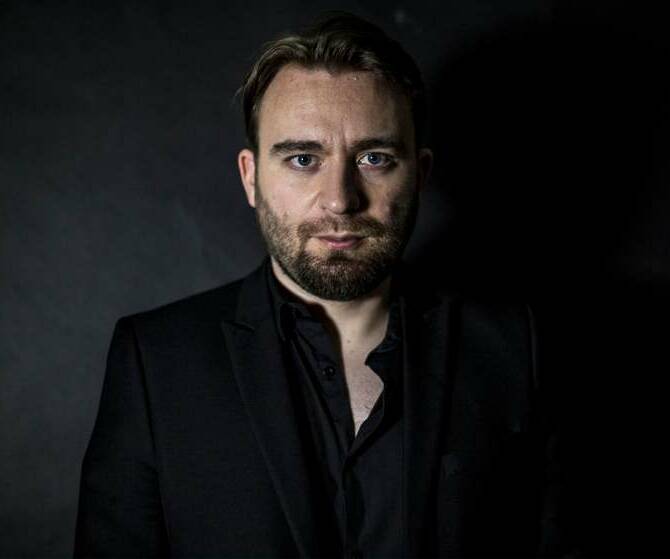This article was published online by the Magyar Nemzet on 5 October 2021.
László Trócsányi: As a lawyer, the ”Hungary is not a state governed by rule of law” is completely incomprehensible.
I believe that Hungary is one of the main players in the debate over European values today – said László Trócsányi in his interview with Magyar Nemzet. His recently published book presents the evolution of the European discourse surrounding Hungary through the lens of his own life and career. According to the professor of law and former Justice Minister, the concept of constitutional identity is extremely important in the debate over the future of the EU; just as Member States cannot surrender their constitutional identity, European development cannot be top-down. László Trócsányi emphasized that the Hungarian fundamental law’s validity cannot be questioned: it was adopted with the legally required two-thirds parliamentary majority.
Tamara Judi: In the introduction of your newly released book, Public Life and Public Law, you write: throughout the past decade, you have witnessed Hungary’s efforts of cutting through the mainstream and finding its own way in Europe. From a legal point of view, what were the most important stops along the way and where does this debate stand today?
László Trócsányi: I’ve spent the past ten years serving public office; this experience has given me perspective and insight that is worth sharing with those interested. My book covers the latest period of my career. When my term as Constitutional Court Justice ended in 2010 and I was set to be the Hungarian ambassador to Paris, the last ruling I signed was related to the Treaty of Lisbon. At that time, I had no idea I was signing a document that is still a defining issue today. In the parallel justification, I referred to the concept of constitutional identity and the fact that no EU Member State can renounce its constitutional identity. Hungary is an independent country and decided, as an independent country, to contribute to Europe’s development. This simultaneously means that as long as the Hungarian state exists, we cannot give up our constitutional identity. It was rather symbolic to have bid farewell from my position of Constitutional Justice with this thought in mind. All the more so in Paris: I had the task of interpreting and explaining Hungary’s new constitution abroad as ambassador. The French legal community was divided on our fundamental law changes, but many stood up for us. The fundamental law adopted in 2011 represented a new spirit compared to the constitutions adopted after World War II. It places greater emphasis on national values, puts the relationship between the individual and the community in a new position, and also provides foundations for the concept of marriage, the importance of family or the responsibility of future generations. It seeks to create a kind of alliance between the past, present, and future generations. Even back then, this constitution came under fire from abroad in the form of the European Parliament’s 2013 Tavares report. The emphasis on national values and Christianity in the constitution is what caused an uproar in Europe. In the past ten years, Hungary played a key role in stirring up the stagnancy Europe in the debate on values.
Tamara Judi: Since the Tavares report, there has been a Sargentini report in the European Parliament along with conflicts with the European Commission. What has changed?
László Trócsányi: The biggest difference I see is that between 2010 and 2014, the European Commission under Jose Manuel Barroso’s leadership, was based on a debate of equals. Our discussions were constructive, and we were able to find compromise. While in the EP, there was some action against Hungary, there was no word at all of the Article 7 procedure. From 2014, and during my term as Justice Minister, conflicts started reaching another level as the Jean- Claude Juncker-lead Commission was far from cooperative. The 2018 Sargentini report included the launch of the Article 7 procedure. It was then that I experienced the way in which those who promote the spirit of Europe can just as soon attack anyone who does not think according to the ideological mainstream. It’s also worth noting that in the meantime, the EU has been in crisis mode essentially since 2010. First, they had no idea how to handle the Arab Spring, then the economic crisis, then migration and then the pandemic. And Brexit is so significant that we cannot even fully comprehend its consequences yet. Instead of the EU being an important player in global politics, it is just trying to catch up. That is why, since 2019, the debate regarding the EU’s future has taken center stage – along with Hungary’s role in this. It may also seem that the failures of Europe over the last decade can be easily masked by the rule of law accusations. Unnecessary disputes have emerged rather than worthwhile self-examination, leading to even deeper trenches in Europe.
Tamara Judi: The debate on Hungarian rule of law and our fundamental law is quite active both domestically and in the EU. As a law professor, what do you think when certain politicians campaign with throwing aside the national constitution?
László Trócsányi: The legitimacy of the Constitution is not negotiable: it was passed by a two thirds majority in parliament according to the law. The modifications were also passed accordingly. The main problem I see is that “rule of law” has lost its original legal meaning and become a political tool. I, as a lawyer, am speaking in legal terms of rule of law. For me, this has a definition dating back to the XIX. century which includes the legal establishment of public administration, the independence of the judiciary branches, and free elections. As a young man I lived under a dictatorship, now under democracy. There were no free elections nor judicial independence then, now both are guaranteed. And I could go on. Thus, I consider the rule of law allegation politically motivated. In the European Parliament, certain MEPs who don’t like a certain government accuse it of violating rule of law. I am a lawyer; for me the argument that Hungary is not a state governed by rule of law is incomprehensible and I find it a purely political accusation. Any country can have debates regarding their constitution, but this has its democratic forums. As a lawyer, I must say that it is absolutely ridiculous for someone to say that they will throw the entire constitution away with a simple parliamentary majority. This cannot happen anywhere in the world.
Tamara Judi: The Conference of Hungarian Lawyers was recently held, organized by the Hungarian Lawyers Association. Were the recommendations formed there a response to the questionable legal dialogue among some politicians these days?
László Trócsányi: The applause our resolution received at the Balatonfüred Conference of Hungarian Lawyers spoke for itself. It was the moral duty of the legal community to speak up. I believe this was done with sufficient elegance: attention was drawn to a discourse as well as the question of consensus. A lawyer can have no other opinion than to support compliance with the law. The Conference also highlighted the relationship between the national constitution and EU law: forming an equal, rather than vertical, communication between courts could go a long way to resolve existing tensions. The Lawyers Conference sent a message to legislators as well: the basis of public trust in the legal system is the fundamental law and the stability of the legal system it rests on. The professional legal order must be incorporated into legislation in good time; there must be adequate preparation time for the entry into force of legislation; examination of the subsequent entry into force of legislation is also important.
Tamara Judi: You mentioned that the debate over the future of Europe has dominated. A series of conferences on this is also taking place among Member States and EU institutions. As part of the event, you recently organized a webinar with well-known European politicians. What were the main conclusions?
László Trócsányi: I am glad we managed to convince famous politicians and key public figures to participate. Jean-Pierre Raffarin, former Prime Minister of France, Prokópios Pavlópoulos, former President of Greece, François-Xavier Bellamy, Member of the European Parliament and philosophy professor, as well as János Martonyi, former Foreign Minister were all in attendance. We all agreed that Europe is a diverse continent where we are united by common values – but each nation also has its own national values. Respect for each other is the key to European unity. European development cannot start top-down as a European superstate, a European demos, or a European language as these do not even exist. We see the principle of subsidiarity as the basis of cooperation. As János Martonyi reminded, Europe was built on three hills: the Acropolis of Greek humanism, the Roman Capitolium of the European state and the Golgotha of the Christian world. Therefore, there is no point in being an EU Commissioner responsible for promoting a European way of life if we do not know exactly what that European way of life is today. We also agreed that culture in Europe must be strengthened and the past should not be erased. The webinar showed that, above all, we need to preserve the diversity of the EU. It is crucial for me that just as integration cannot be top-down, so the debate on its future cannot be. I can only hope our conclusions will be heard.




